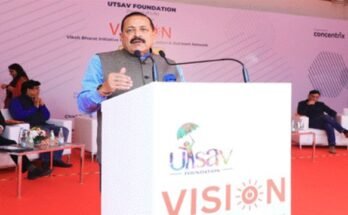The Swiss Agency for Development and Cooperation (SDC) has supported the implementation of the Nepal Vocational Qualifications System (NVQS) project since October 2015. Since the promulgation of the Constitution of Nepal in 2015, Technical and Vocational Education and Training (TVET) lies within the concurrent right and responsibility of all three spheres of government (federal, provincial, local). The federal government is responsible for the regulation of the TVET system, based on national policies, standards and frameworks, whereas provincial and local governments are responsible for the implementation of training programmes. In addition, local governments are responsible for providing operation permissions to TVET schools as well as their monitoring. The NVQS project is designed in the spirit of these TVET functions of the three spheres of government.
The NVQS project is planned for three consecutive phases (01.01.2015-31.12.2025). It aims to contribute to the reform of the TVET sector in Nepal by supporting the Government of Nepal in establishing a National Vocational Qualifications (NVQ) system. The NVQ system defines technical and vocational qualifications that serve as reference to validate and certify competencies (knowledge, skills and attitudes) gained either through training or through experience. Certification will facilitate people’s access to higher level skills training or to the national and international labour market for better earning. The NVQS project is aligning with the Swiss Cooperation Programme for Nepal 2023-26, i.e., its outcome statement 2.3 “women and men, including those from disadvantaged groups, increase productivity and find employment”.
The NVQS project phase II aims at three outcomes and related outputs: i) certified Nepali youth, through a National Vocational Qualifications system, gain employment in domestic and international markets; ii) The Council for Technical Education and Vocational Training (CTEVT)/ the National Skill Testing Board (NSTB) on behalf of the Ministry of Education, Science and Technology (MoEST) implement the National Vocational Qualifications system in partnership with the private sector; and iii) Provincial governments implement the vocational qualifications system. The NVQS project phase II has a duration of four years, from 16 July 2020 to 15 July 2024.
The private sector (business, industries and employers) along with the three tiers of government are the key stakeholders in the NVQ system. A special emphasis of phase II of the NVQS project is put on the roles of private sector actors, i.e., various sector skills committees
[1]. Complementary, phase II strengthens the roles of government stakeholders, particularly the CTEVT/NSTB at the federal level and the MoSD/E at the provincial level to implement the NVQ system.
During the course of the implementation of the NVQS project, important milestones were achieved. They include the endorsement of the National Education Policy (NEP) in 2019, which highlights the importance of TVET and skills development. In addition, the National Qualifications Framework (NVQF) was approved by the federal cabinet on 7 May 2020 and the Fifteenth Five-Year Plan of the National Planning Commission of Nepal highlights the importance of vocational training, including apprenticeships and vocational guidance. It also highlights the importance of the NVQF for the coherence and transparency of the TVET system in Nepal. Last but not least, the TVET Sector Strategic Plan (TSSP) has been finalized and is ready for approval by the federal cabinet. Despite these achievements, Nepal’s TVET act, which would further clarify the roles of three spheres of governments in regard to the NVQ system, is still pending approval.
An external mid-term review of the NVQS project phase II is planned to assess if the project is in line with its planned outcomes and to provide strategic direction and recommendations to the SDC for the remaining part of phase II as well as for the next phase of the project (exit phase). The SDC is therefore seeking the services of an independent team of consultants to undertake the review. The mid-term review conducted by the consultants will be complemented by a separate Gender Equity and Social Inclusion (GESI) assessment of the NVQS project, and by an internal review, which the NVQS project team will carry out independently. Both the GESI assessment and the internal review will take place before the mid-term review, and their reports will serve as inputs to the external mid-term review.
Purpose of the mid-term review:
The purpose of the external mid-term review is two-fold:
- Asses the mid-term achievements of the NVQS project phase II (backward-looking).
- Make recommendations for the adaptation of phase II and for the design of the next project phase (forward-looking).
Methodology and scope of work
The review team will propose the methodology, discuss and agree on it with the SDC Nepal. The external review team is expected to conduct interviews and have consultations with project team members and key stakeholders (annex 2) to gather relevant information about the questions raised above. Major tasks include but are not limited to:
- To review reference documents to be familiar with the nature of the NVQS project.
- Assess to what extent the three tiers of government have assumed their TVET roles.
- To consult with NVQS stakeholders at federal level and in all seven provinces. The team will conduct a deep dive review in at least three of the seven provinces.
- To share preliminary findings with the SDC.
- To share findings with steering committee members and key stakeholders
Submission Process
Interested consultants (individuals or teams) who have the relevant expertise and experience are asked to submit:
- A concept note (max. 5 pages) outlining the approach and methodology for the midterm evaluation of the NVQS project, as well as a work plan/timetable for the assignment.
- Updated CVs.
- A detailed budget, including all costs related to the assignment.
Proposals are to be sent by e-mail to SDC Nepal (kathmandu@eda.admin.ch) with the clearly marked subject “Consultancy for the mid-term evaluation of the NVQS project”. Only complete submissions will be taken into consideration.
Last Date for Submission: 29 March 2023, 7:00 AM (GMT+5:45)
Let's spread the information further and build an informed community! Share this article with your network...
Related



